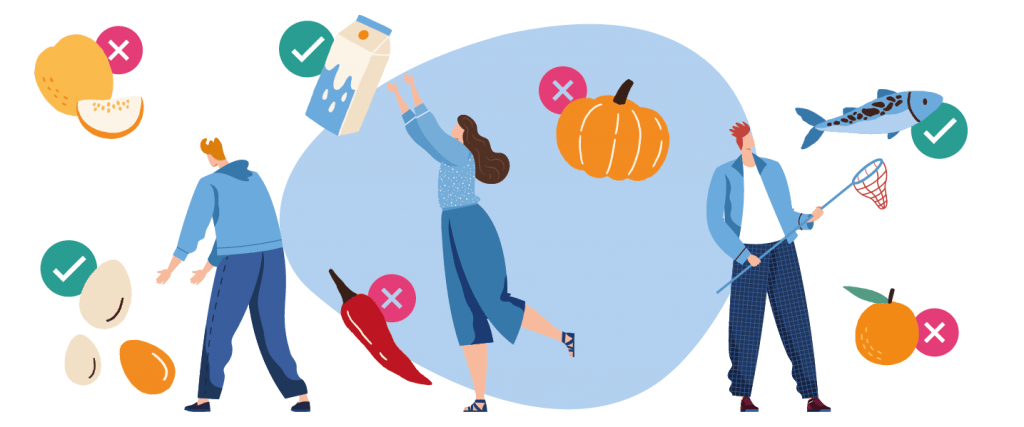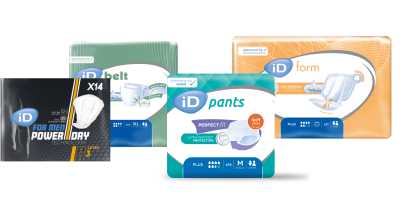If you have bladder issues, such as a urinary tract infection(UTI) or bladder weakness, then eating a healthy, balanced diet and taking supplements can really help ease your symptoms. But which vitamins can irritate the bladder and which actually help?
Vitamins that irritate the bladder
While some vitamins can help with bladder health, it’s important to know that others can worsen your symptoms if you have bladder troubles.Nonetheless, some vitamins you may wish to avoid are:
- Vitamin C – many patients with interstitial cystitis (recurrent UTIs) report that taking a Vitamin C supplement causes ‘bladder flares’ and trigger a ‘need to go’ in women. However, Vitamin C found naturally in food doesn’t appear to cause issues
- Iron supplements – excess iron can cause constipation, which puts pressure on the bladder, causing leaks and discomfort1
- β-cryptoxanthin – this is a vitamin found in food such as tangerines, red peppers and pumpkin.2 In a 2016 study, it was found to worsen voiding symptoms (such as improper emptying of the bladder and leaks) in individuals with lower urinary tract symptoms3
- Any vitamin buffered with aspartame may increase urinary frequency and urgency4
iD would recommend you speak to a doctor before making changes to your diet or taking supplements.

Beneficial vitamins for overactive bladders
Suppose you have a long-term or chronic overactive bladder that causes bladder weakness and urinary incontinence with symptoms such as leaks and an urgent need to empty your bladder. In that case, these vitamins may improve your condition:
- Vitamin D – there is research that shows that low vitamin D levels may weaken the pelvic floor. Please note: you should not exceed 2000mg of Vitamin D a day unless prescribed by your doctor. You can increase Vitamin D through your diet by eating fish, fortified milk and yoghurt, and eggs5. You can also strengthen the pelvic floor with pelvic floor exercises6
- Vitamin C – while supplemental Vitamin C can irritate the bladder, eating a diet rich in Vitamin C can decrease urinary urgency7
- Magnesium – magnesium helps our muscles function properly and can help prevent muscle spasms in your bladder. Good sources of magnesium include bananas, avocados and dark leafy greens.8
Another way to manage a weak bladder is to use the correct continence products. iD has a wide range of discreet, dermatologically tested and comfortable pads and pants to suit everyone’s needs. Shop the range here.
What is my ideal solution?

What vitamins to take when you have a UTI
Urinary tract infections, such as cystitis and urethritis, cause symptoms such as a burning sensation when you wee and cloudy or bloody urine. They can be incredibly uncomfortable and you’ll probably want to speed up your recovery. If you’d like to manage a UTI naturally, we have a blogpost with some fantastic tips. Additionally, some vitamins that may help are:
- Vitamin C – in this case, large amounts of Vitamin C reduce the growth of bacteria by acidifying the urine. You can find it naturally in fruit, such as cranberry juice9 and oranges
- Probiotics. Present in fermented foods, like Greek yoghurt and kefir or as a supplement, probiotics contain good bacteria that prevents bacteria from growing
- D-Mannose – this is a sugar that prevents bacteria from sticking to the lining of your urinary tract. It is found in cranberries, apples and peaches, although you could take a supplement10
We hope this article has given you some ideas on vitamins to introduce (and reduce) to your diet to help urinary tract symptoms. If you want to make changes to your diet or supplement regime, iD recommends speaking to a healthcare professional first
Do you want a 20% discount on your first order?
Receive incontinence tips, expert advice, and promotions by email.
Sources
1 “Supplements”, Interstitial Cystitis Association, 2 May 2016, Source: https://www.ichelp.org/living-with-ic/interstitial-cystitis-and-diet/supplements/
2 “Absorption, metabolism and functions of β-cryptoxanthin”, Betty J. Burri, Michael R. La Frano and Chenghao Zhu, 11 January 2016, Source: https://www.ncbi.nlm.nih.gov/pmc/articles/PMC4892306/
3 “Intakes of Vitamins and Minerals in Relation to Urinary Incontinence, Voiding, and Storage Symptoms in Women: A Cross-Sectional Analysis from the Boston Area Community Health Survey”, Nancy N. Maserejian, Edward L. Giovannucci, Kevin T. McVary, and John B. McKinlaya, 15 March 2011, Source: https://www.ncbi.nlm.nih.gov/pmc/articles/PMC3085565/
4 “Are there dietary changes I can make to deal with overactive bladder?”, Jennifer K. Nelson, 17 April 2020, Source: https://www.mayoclinic.org/healthy-lifestyle/nutrition-and-healthy-eating/expert-answers/diet-and-overactive-bladder/faq-20322774
5 Ibid
6 “Supplements”, Interstitial Cystitis Association, 2 May 2016, Source: https://www.ichelp.org/living-with-ic/interstitial-cystitis-and-diet/supplements/
7 “Are there dietary changes I can make to deal with overactive bladder?”, Jennifer K. Nelson, 17 April 2020, Source: https://www.mayoclinic.org/healthy-lifestyle/nutrition-and-healthy-eating/expert-answers/diet-and-overactive-bladder/faq-20322774
8 “Three vitamins that may help with bladder control”, National Association for Continence, n.d., Source: https://www.nafc.org/bhealth-blog/3-vitamins-that-may-help-with-bladder-control
9 “Urinary Tract Infections”, John Hopkins Medicine, n.d., Source: https://www.hopkinsmedicine.org/health/conditions-and-diseases/urinary-tract-infections#:~:text=Drink%20cranberry%20juice.,when%20you%20feel%20the%20need
10 “Prevent UTIs at Home: 5 Natural Tips”, Urology San Antonio, n.d., Source: https://www.urologysanantonio.com/prevent-utis-at-home-5-natural-tips/

1 Comment
Thank you been very helpful.